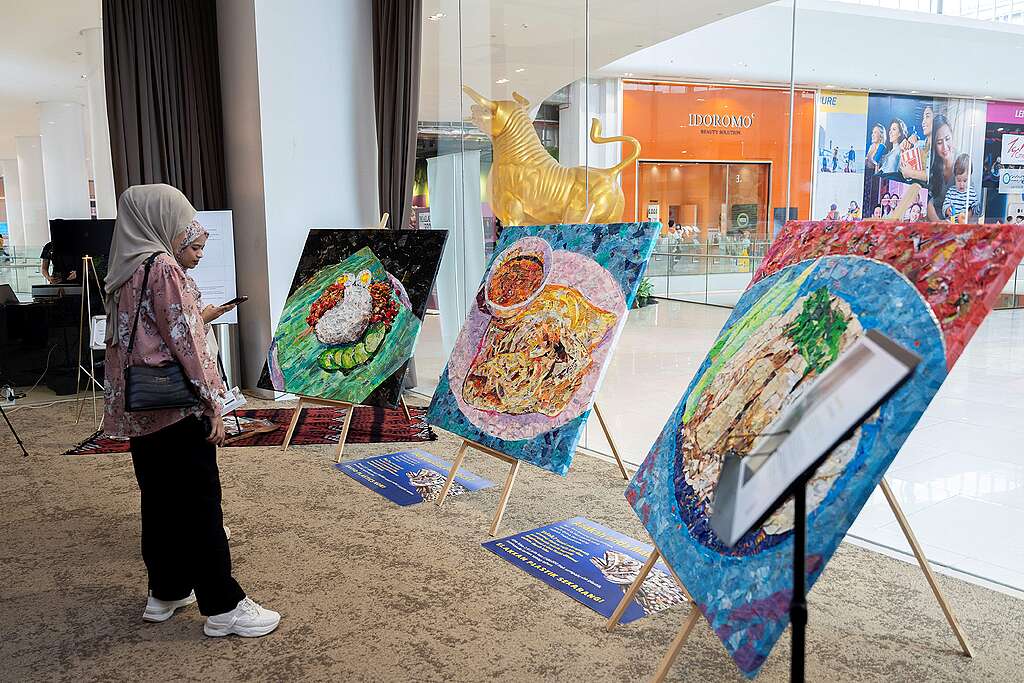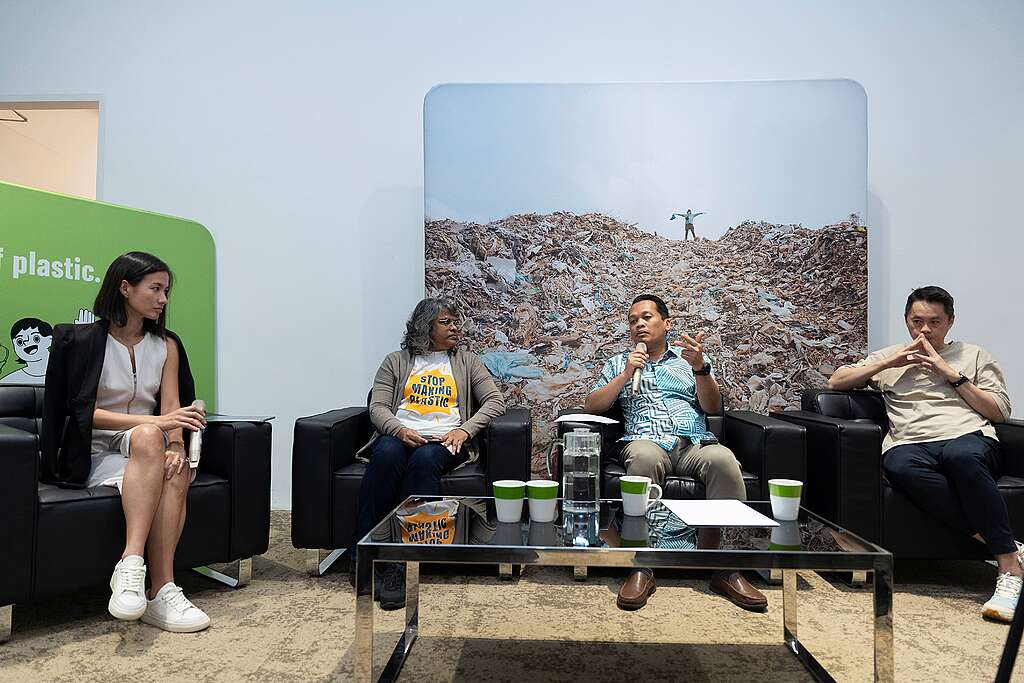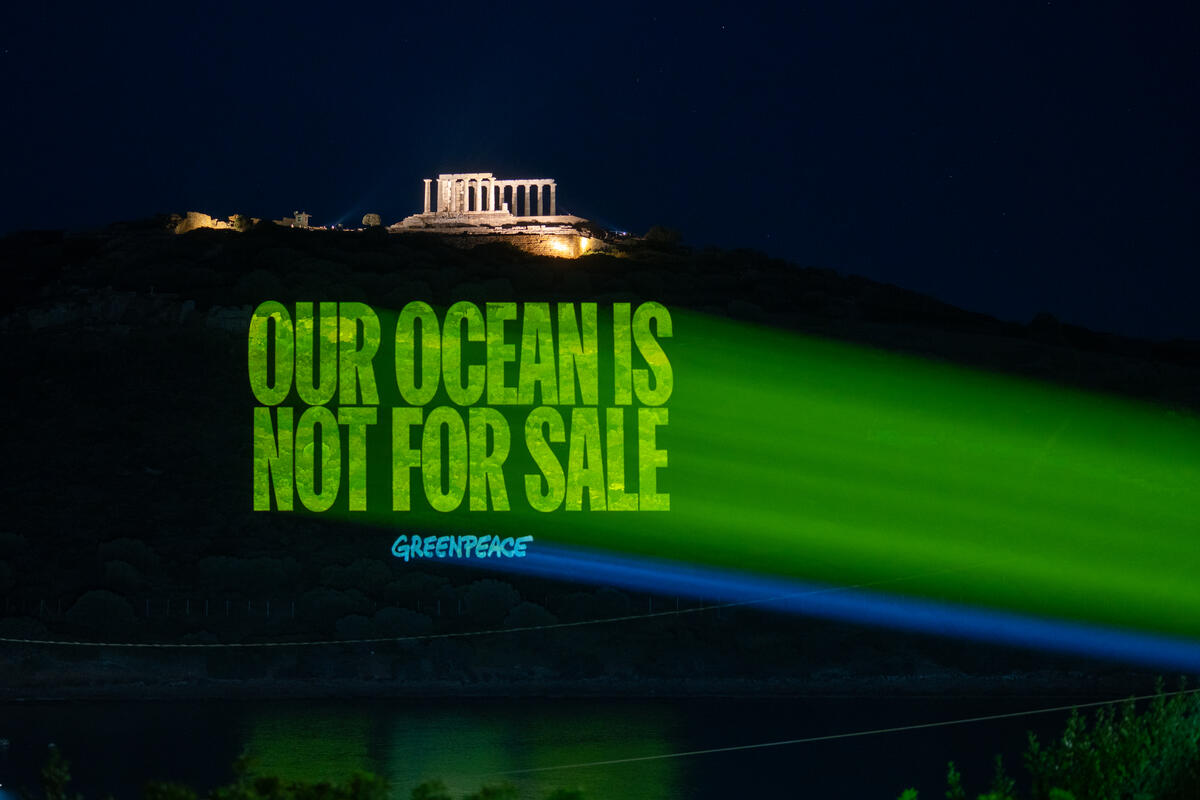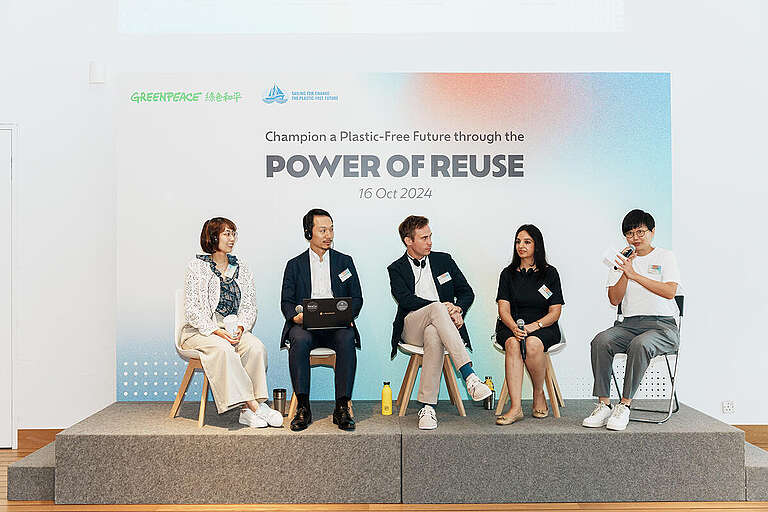Malaysia Stop Waste Trade Coalition: The Government needs to commit to an ambitious and effective Global Plastic Treaty to end plastic pollution
Kuala Lumpur, Malaysia – Challenging cultural norms of our dependence on plastic, through art, film and stories, with the ‘Journey to End Plastic Pollution’ public engagement event by Malaysia Stop Waste Trade Coalition. The three-day event that ended on Oct 20, serves as a critical platform to illuminate the stark realities of our dependence on plastic as a collective push by the coalition, ahead of the Intergovernmental Negotiating Committee (INC-5) less than five weeks away.

Emphasising the need for decisive action in the upcoming INC-5, it also served as a reminder of Malaysia’s lacklustre participation in the previous INC. Culminating in a Fireside Chat session on ‘People or Plastic?’ with the Minister of Natural Resources and Environmental Sustainability Y.B. Nik Nazmi bin Nik Ahmad, the session featured discussions on the intersection between human and environmental rights, and steps to address issues with plastic waste management in Malaysia. Panellists included the Representative of Malaysia to the ASEAN Intergovernmental Commission of Human Rights (AICHR) H.E. Edmund Bon Tai Soon, and Honorary Secretary of Sahabat Alam Malaysia and Researcher for the Consumers’ Association of Penang Mageswari Sangaralingam, moderated by climate action and sustainability advocate Melissa Tan.

Nik Nazmi highlighted the challenges of dealing with plastic waste due to the fragmented policies from various ministries, divided again by Federal, state and local governments. While Edmund Bon shared that AICHR has been negotiating an ASEAN Declaration of Environmental Rights for the past two years, calling on the ministry to champion the declaration as Malaysia chairs ASEAN next year.
Nik Nazmi shared the planned approaches at tackling plastic waste, while confirming the need for Malaysia to lead the agenda on the ASEAN Declaration for Environmental Rights:
“What we are working on right now is to have a National Policy or legislation on plastic as we ultimately as we are also going towards the Global Plastics Treaty, and we need that sort of legislation to bring everything together and have a united approach. We cannot miss this golden opportunity; for so long we’ve had this ASEAN way of ‘you mind your own business’. This is the time and the ASEAN Declaration of Environmental Rights is a way for us to go beyond our borders to see what we can do, together as a region.”
As the ‘Journey to End Plastic Pollution’ event coincides with the 2025 National Budget announcements, questions were raised on whether the Malaysian government’s positive step forward in allocating RM300mil to the National Energy Transition Fund (NETR) will be marred by the inclusion of 18 Waste-to-Energy power plants.
Mageswari raised the question of false solutions such as plastic credits and the proposed 18 Waste-to-Energy power plants as one of the means of tackling the plastic waste problem:
“In INC-5, we have been calling firstly to reduce plastic production, because without clear obligations and effective measures to limit the current growth and production of plastics, the treaty will fail to address the plastic pollution crisis if we don’t tackle it at source – it has to be a global phase out because plastic is being traded.
“Communities are against incineration so there’s a new word now, ‘Waste-to-Energy’ facilities – but it is still incinerators in disguise, and this is incompatible with the circular economy. WTE incineration is actually not ‘renewable energy’ but it is being pushed as renewable energy even in the NETR,” she said due to its role in perpetuating the cycle of pollution and waste importation.
Wong Si Peng, Malaysia Stop Waste Trade Coalition representative said:
“Each of our organisations have done various activities ranging from meeting with communities, research and publication of reports and engagement with enforcement agencies looking into the issue of plastic waste in Malaysia. This is the first time a creative and artistic way is used to share our information on the state of plastic pollution with the general public.
“Through our work, we have seen the dirty, ugly side of plastic pollution impacting our environment and the communities tucked away from urban populations. We hope this public engagement event in a more urban area, using this creative medium, will enable more public to join the journey to end plastic pollution.”
Thing Siew Shuen, Greenpeace Malaysia senior programme manager said:
“INC5 presents a crucial opportunity to reshape our relationship with plastics through a Global Plastics Treaty. And Malaysia is running out of time to change course as its lack of commitment to a strong, impactful Global Plastics Treaty that focuses on addressing the root causes of plastic waste through a reduction in the production, puts our future at serious risk.”
-ENDS-



